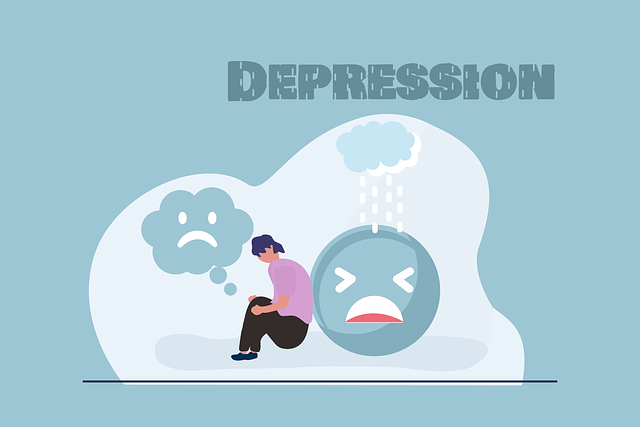Mental health counseling offers a supportive, evidence-based therapeutic process aimed at managing and overcoming diverse mental health challenges. Trained counselors create safe spaces for clients to explore thoughts, emotions, and behaviors using techniques like CBT and mindfulness. The goal is not only symptom reduction but also building resilience and enhancing long-term well-being. Choosing the right therapist, setting clear goals, and integrating therapy insights into daily life are vital steps for successful mental health management. Overcoming stigma and access barriers, with support from counselors and community resources, significantly contributes to sustained mental health stability.
Mental health issues are a common struggle, but seeking help through mental health counseling can be transformative. This comprehensive guide explores the multifaceted benefits of professional therapy for overall well-being. From understanding various counseling techniques to finding the right therapist and setting achievable goals, we demystify the process. We also address challenges often faced in therapy and provide strategies for integrating newfound insights into daily life. Discover resources and support systems to empower your continuous mental health management journey.
Understanding Mental Health Counseling: A Comprehensive Guide

Mental Health Counseling is a therapeutic process that aims to support individuals in managing and overcoming various mental health issues. It’s a comprehensive guide to navigating one’s thoughts, emotions, and behaviors. This form of counseling involves building a safe, non-judgmental space for clients to explore their experiences and challenges. Through active listening, skilled questioning, and evidence-based techniques, counselors help clients gain insights into their mental health concerns.
The process often begins with an initial assessment to understand the client’s unique needs. From there, counselors employ tailored strategies such as cognitive-behavioral therapy (CBT), mindfulness practices, or psychodynamic approaches. Regular sessions facilitate open dialogue, allowing individuals to express their feelings, work through traumas, and develop healthy coping mechanisms. The goal is not just symptom reduction but also fostering resilience, enhancing self-awareness, and promoting long-term mental well-being.
The Benefits of Professional Therapy for Your Overall Well-being

Professional therapy offers a multitude of benefits for your overall well-being. Mental health counseling provides a safe and supportive space where individuals can explore their thoughts, feelings, and behaviors without judgment. Trained therapists use evidence-based techniques to help clients understand and manage their mental health conditions, leading to improved emotional regulation, enhanced coping skills, and increased resilience.
Through therapy, individuals gain valuable insights into themselves and their lives, fostering self-awareness and personal growth. It empowers them to develop healthy relationships, improve communication skills, and make informed decisions. Moreover, regular sessions can significantly reduce symptoms of anxiety, depression, trauma, and stress, promoting a greater sense of calm and contentment. This not only improves day-to-day functioning but also enhances overall quality of life.
Different Types of Mental Health Counseling Techniques

Mental health counseling offers a wide array of techniques, each tailored to address specific needs and preferences. One common approach is cognitive-behavioral therapy (CBT), which focuses on identifying and changing negative thought patterns and behaviors. CBT helps individuals manage symptoms of anxiety, depression, and other mental health conditions by teaching them practical coping strategies. Another popular method is interpersonal therapy, centered around improving communication skills, resolving relationship conflicts, and enhancing social support networks, making it effective for treating depression, grief, and adjustment disorders.
Existential therapy delves into personal meaning, purpose, and authenticity, aiding in processing life transitions, existential crises, and promoting self-awareness. Additionally, mindfulness-based interventions, such as Mindfulness-Based Stress Reduction (MBSR), teach individuals to focus on the present moment, reducing stress and anxiety. Other techniques include psychodynamic therapy, art therapy, and group counseling, each with its unique benefits in fostering mental well-being.
Finding the Right Therapist: What to Consider Before Starting

Choosing the right therapist is a crucial step in embarking on your mental health journey. It’s essential to consider several factors before beginning therapy. First, align with a therapist whose specialty and approach match your specific needs. Mental health counseling offers various techniques, such as cognitive-behavioral therapy (CBT) or mindfulness-based practices, so finding a practitioner well-versed in your desired method is key.
Additionally, ensure you feel comfortable and safe during sessions. The therapeutic relationship should be based on trust and open communication. Consider the therapist’s credentials, experience, and whether their values align with yours. It’s okay to interview several candidates before selecting one who feels right for you. Remember, finding the perfect fit can enhance your therapy experience and contribute to successful mental health management.
Setting Clear Goals: Collaborating with Your Therapist

Setting clear, achievable goals is a collaborative process between you and your therapist. It’s an essential part of mental health counseling, where you work together to navigate challenges and foster positive change. During sessions, discuss your aspirations for therapy—whether it’s managing anxiety, improving self-esteem, or enhancing relationships. Your therapist will help you break these broad goals into specific, measurable milestones.
This goal-setting approach provides a roadmap for your recovery journey. It allows you to track progress and adjust strategies as needed. Regularly reviewing and revising these goals ensures that therapy remains focused and aligned with your unique needs, ultimately enhancing the effectiveness of mental health counseling.
Common Challenges in Therapy and How to Overcome Them

Many individuals seeking mental health counseling face several common challenges that can impact their therapeutic journey. One significant hurdle is stigma—the social shame and discrimination often associated with mental illness. This stigma can deter people from seeking help, leading to prolonged suffering. To overcome this, therapists play a vital role in creating a safe, non-judgmental space, fostering an environment where clients feel comfortable discussing their struggles openly.
Another challenge is access to quality care. Limited resources, long waiting lists, and financial constraints can hinder individuals from receiving the necessary support. Addressing these barriers involves increasing mental health awareness, advocating for better funding, and promoting accessible treatment options such as online therapy or community-based programs. Additionally, educating both clients and society about the effectiveness of counseling can dispel misconceptions and encourage more people to pursue mental health counseling when needed.
Integrating Lessons Learned from Counseling into Daily Life

After engaging in mental health counseling, the real work begins—integrating the lessons learned into daily life. This process involves actively applying the strategies and insights gained from therapy sessions to navigate challenges and maintain mental well-being. It’s about carrying the progress made in the therapeutic space into the familiar landscapes of everyday routines and interactions.
For many, this integration is a transformative journey. It requires dedication, self-awareness, and practice. By incorporating coping mechanisms, new perspectives, and personal growth strategies into their lives, individuals can enhance their resilience and better manage symptoms associated with mental health issues. This continuous effort ensures that the benefits of counseling extend far beyond the therapy room, fostering long-term mental health stability and improved quality of life.
Resources and Support for Continuous Mental Health Management

Continuous management of mental health issues requires a robust support system and access to diverse resources. Mental health counseling plays a pivotal role in this process, offering individuals a safe space to explore their thoughts and emotions. Professional counselors provide evidence-based strategies to cope with stress, anxiety, depression, and other common mental health concerns. Regular sessions can help individuals develop resilience, enhance self-awareness, and cultivate healthier coping mechanisms.
In addition to individual counseling, there are various community resources available, such as support groups, peer mentoring programs, and online forums. These platforms foster connections among individuals facing similar challenges, creating a sense of belonging and mutual understanding. Combining professional mental health counseling with these supportive networks can significantly contribute to long-term well-being and effective management of mental health issues.
